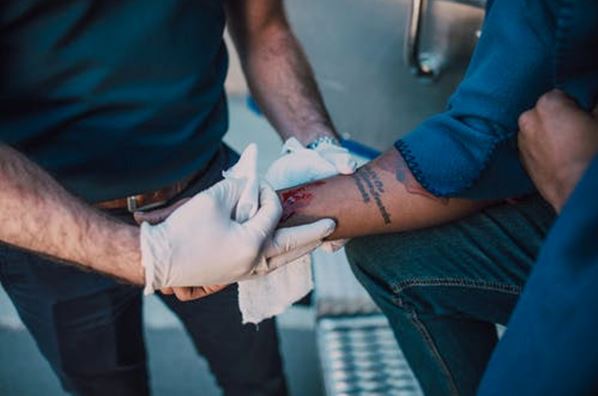Do you know that Fungi can enter your body from cuts and wounds and lead to serious infections? In worst cases, the fungus can enter blood and tissues, leading to death in some patients.
When this happens, it’s called septicemia or sepsis, and every year, 1.7 million Americans die because of it. This blog post will highlight all you need to know about fungal infection wounds.
How Do They Happen?
When you get a wound, regardless of whether it’s major or minor, there is a breach in the protective layer of your skin. The purpose of your skin is to keep the harmful agents away from entering your body.
However, when you’re wounded and your skin is damaged, you are exposed to all sorts of harmful microbes. To avoid that, doctors advise you to keep your wounds covered with a bandage.
Apart from that, doctors may also apply some anti-microbial creams to the wounded areas. In worse cases, doctors give antibiotics to deal with any bacteria that may have entered your body. All these things are necessary to not only keep you safe from infections but also to promote healing.
When a patient is careless and doesn’t take care of his wound, fungal infections may occur. Letting your wound exposed to open air allows the harmful microbes to attack and enter the body. Gradually, if the patient keeps ignoring the wound, the microbes may spread to all the surrounding areas, resulting in a painful infection.
What Should You Do?
If you notice that your wound is not healing or the area around your wound is swelling up and becoming painful, immediately seek medical support to prevent further spread of infection.
In the early stages, antibiotics may work and kill the fungal spores before they go too far. However, if left uncontrolled, fungal wound infections can take months to heal.
How to Prevent Fungal Wound Infections?
The best way to prevent fungal wound infections is to keep your wounds covered and apply anti-fungal ointments. Apart from that, getting professional medical support to take care of your wounds can also help. You can reach out to any reliable healthcare provider to get your bandages changed regularly.
At Embassy Home Healthcare, we have trained professionals to take care of wounds. We use evidence-based methods to deal with pain and take care of your wounds. Contact us today to find out more about our services in Houston and surrounding areas.

